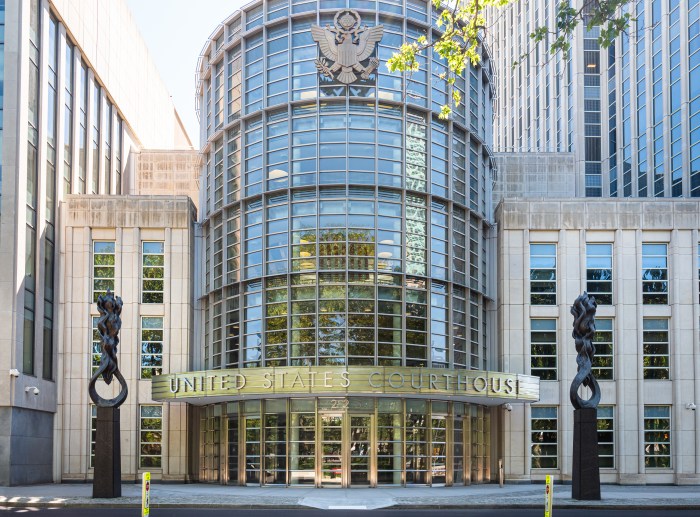
They have one eye on Washington and the other on Wall Street. Investors are paying close attention because the contentious debate in Congress could have very serious implications for their 401(k) accounts.
There’s no doubt much is as stake for retirement savers. All told, they have more than $3 trillion invested in 401(k) plans.
So far investors haven’t made significant shifts within their accounts. The Vanguard Group, a leading 401(k) provider, says that there hasn’t been a notable rise if the volume of client calls or visits to its website.
“We’re not seeing people overreacting or panicking yet,” said Amy Cribbs, head of the company’s participant experience group.
Similarly, clients at Charles Schwab & Co. are paying attention. Many are very concerned that the debt ceiling issue may not be resolved by the Aug. 2 deadline, leading the government to a possible default on its debt. Yet the firm hasn’t detected a spike in the number of investors shifting money between accounts.
“There’s a lot more talk than action right now,” said Paul LeBoeuf, a financial consultant at Charles Schwab.
After the last few years investors seem to be numb to negative headlines. They have seen the market come back, bolstering their belief that any short-term downturn resulting from the debt ceiling debate may be temporary. The Standard & Poor’s 500 index has nearly doubled since its March 2009 low. As of yesterday’s close it’s up about 95 percent.
There would be a much stronger flight to cash if investors believed Congress would allow the U.S. to default, said Eugene Profit, CEO and founder of Profit Investment Management in Silver Spring, Md., which manages about $2 billion in assets. If the risk of default grows, “some investors will throw in the towel or think they’re better served with their money under their mattress.”
For the moment, it appears that most will ride out any volatility that may arise as the deadline approaches, and hope that analysts are correct in thinking that the markets would likely greet news of a compromise deal with a “relief rally.”
Thinking through options and considering how a default my affect your finances is an important first step.
PLAY DEFENSE
A cautious move would be to sell stock funds, put money into a cash alternative, and wait it out. There is a down side to that strategy. If there is a last-minute agreement and default is averted, the market will probably soar in elation.
The hard part is that if you miss the days when there’s a big rise in the market, that’s where the majority of market returns come from over time, Profit said.
The primary focus for many individuals who are close to retirement is to preserve their assets. Sacrificing some potential returns in exchange for safety may be more important.
Another strategy is to make sure you have enough money accessible to support yourself for at least six months. Many advisers would say a year. This emergency money should be in an account from which it can be easily drawn — a bank or credit union money-market savings account, for example.
ASSESS YOUR DEBT
Keep interest rates in mind as you evaluate your finances. A default would drive up the cost of government borrowing for years to come. That would translate into higher interest rates for everybody else. If that happens, some debt such as a variable rate mortgage could get you caught in a bad spot. Consider if you should refinance while mortgage rates are still historically low.
While you’re looking at debt, consider credit card and other revolving credit lines that might be interest rate sensitive. Pay them down or pay them off, if possible.
REVISIT FINANCIAL PLAN
Times like this should serve as a reminder to evaluate your financial plan to see if it’s on track. It’s all too easy to get so busy that financial planning is put on a shelf and left alone.
Revisiting your plan means looking at your allocation to stocks, bonds, cash, and other investment options. Be sure your strategy is still sound and your exposure to risk is on target.
It’s not smart to change allocations when fear may be dictating strategy, but periodically reevaluating your risk tolerance in light of your time until retirement is important. During the market downturn too many near-retirees were caught with too much stock in their portfolios and many lost as much as 40 percent of their money with no time to get it back.
Too many investors either don’t have a plan or fail to revisit one they put together years ago. Financial planning is an ongoing task and needs to be updated regularly.
DON’T PANIC
Investors are always fighting impulses of greed and fear. Letting fear take over is the riskiest thing you can do.
Sticking with a strategy in the midst of uncertainty isn’t easy. It was heartbreaking in the 2008 downturn to see investors with diversified portfolios get scared and jump out of the market at the wrong time, locking in their losses, said Vanguard’s Cribbs.
“You have to trust what history has taught us,” she said, reminding investors that the market will ultimately rebound and they will be put back on the right trajectory.
Copyright 2011 The Associated Press.

































